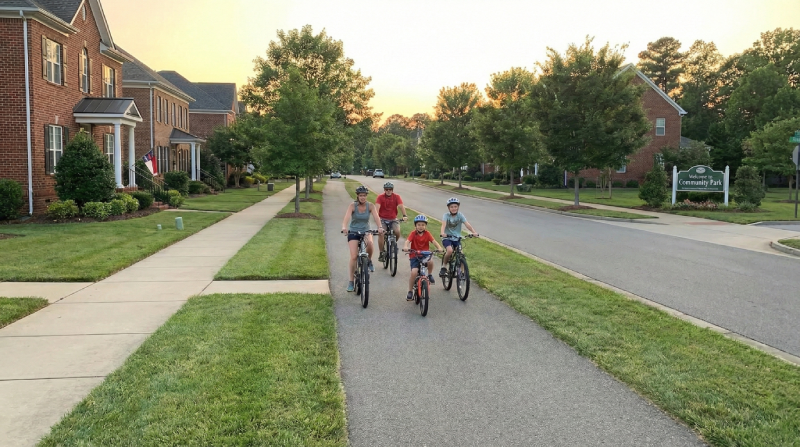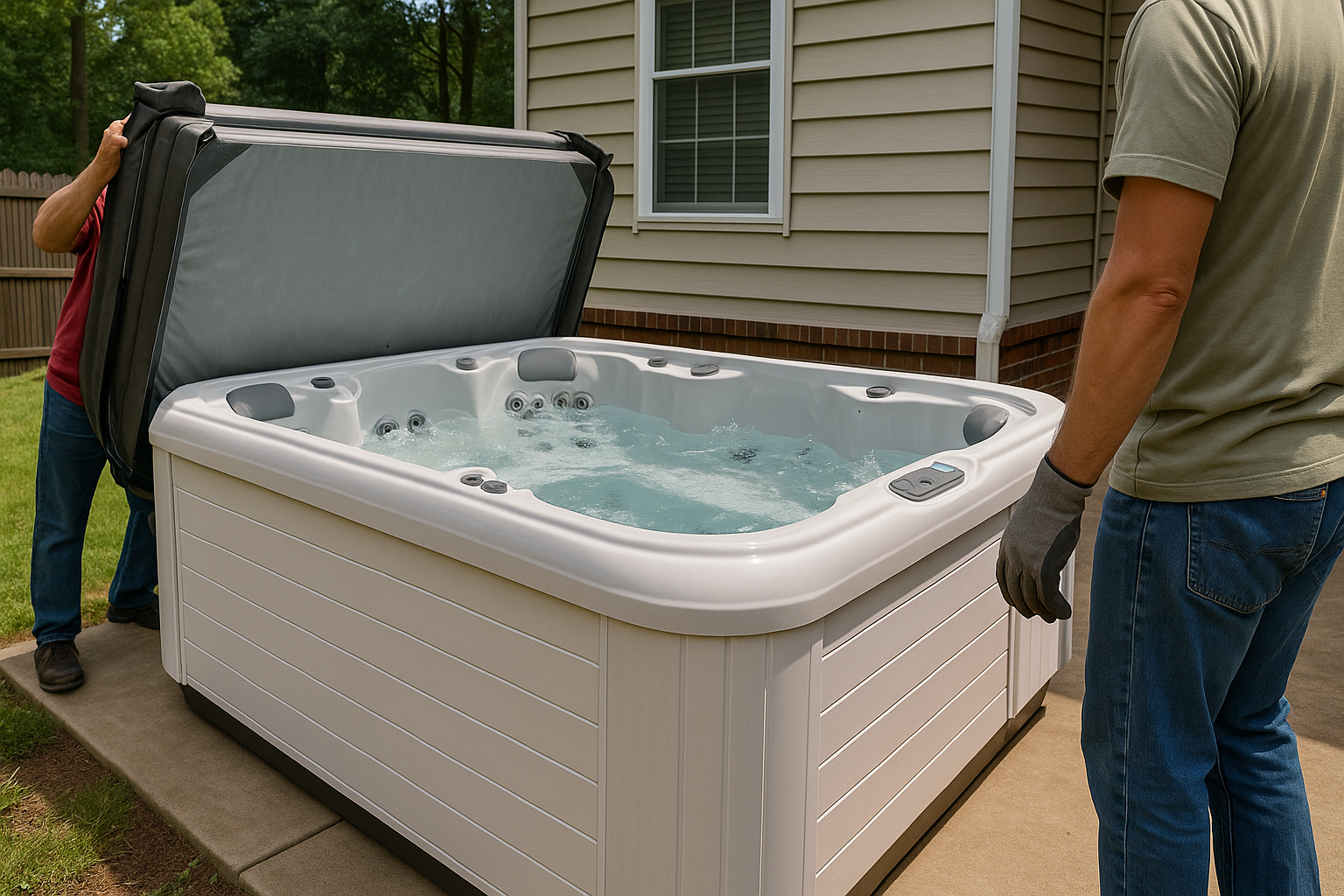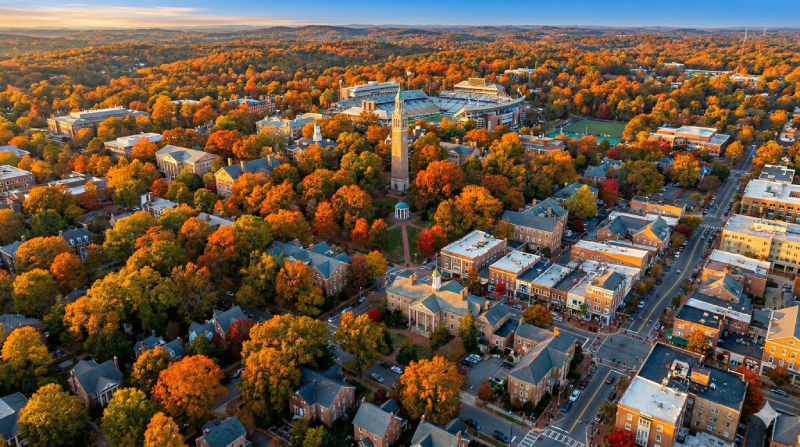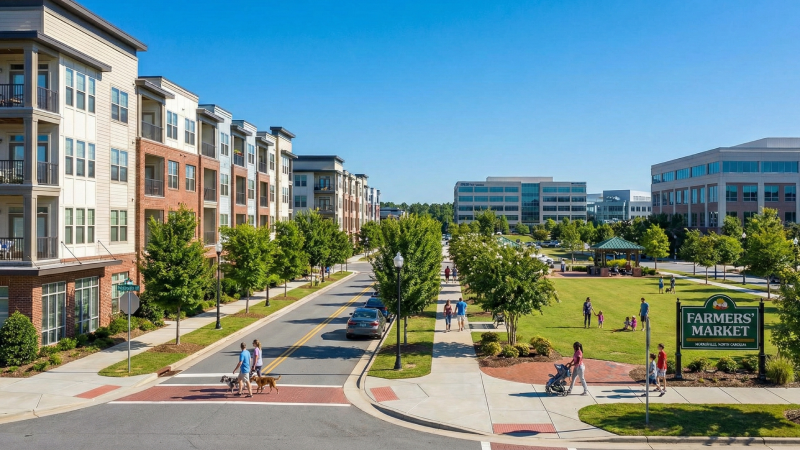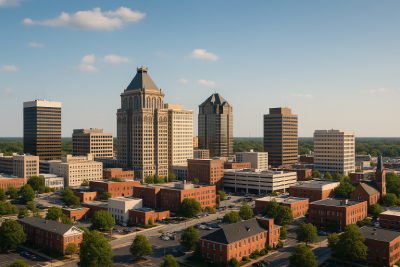For those considering Concord, NC, this growing Charlotte suburb of 105,000 offers lower prices, good schools, and job opportunities, but has limited transportation options. Located northeast of Charlotte, Concord gives you suburban living with access to big-city amenities.
If you're thinking about moving to Concord, NC, this article looks at housing, safety, schools, and quality of life to help you decide if this North Carolina community fits your needs.
Concord, NC: Location and Weather
Located in Cabarrus County, about 20 miles northeast of Charlotte, Concord sits along Interstate 85. The city has four distinct seasons with hot, humid summers where temperatures often go above 90°F from June through August. Winters are fairly mild, with occasional light snow and average lows in the 30s.
Spring has pleasant temperatures and blooming plants, while fall offers comfortable weather with colorful leaves. The area gets about 43 inches of rain each year, spread fairly evenly throughout all seasons, making it greener than many other suburban areas.
Pros and Cons of Living in Concord, NC
Concord offers reasonable housing costs, established schools, and job options as a growing Charlotte suburb. Residents enjoy housing costs lower than those in Charlotte and community amenities, but also face increasing traffic and limited public transportation.
Pros of Living in Concord
- More affordable housing compared to Charlotte, though prices continue to rise.
- A diverse job market with various employment sectors.
- Good access to shopping, dining, and entertainment options.
- School district with graduation rates above state averages.
- Crime rates are generally below national averages.
- Accessible location with manageable commute times to Charlotte.
- Community-oriented atmosphere with recreational facilities and events.
- Increasingly diverse population demographics.
Cons of Living in Concord
- Worsening traffic congestion, particularly around commercial centers.
- Limited public transportation infrastructure compared to urban areas.
- Hot, humid summers can be uncomfortable for some residents.
- Infrastructure challenges related to rapid population growth.
- Some neighborhoods are experiencing increases in property crime.
- Rising property taxes correspond with increasing property values.
Cost of Living in Concord, NC
Housing affordability is important for potential Concord residents in 2025. With Charlotte's real estate market continuing to rise, many buyers and renters look to surrounding communities for better options. Here's how Concord's cost of living compares to national averages and nearby communities:
Housing Costs in Concord
As of 2025, Concord's median home value is about $380,000, showing a modest increase of around 4% from 2024, but still below Charlotte's median of roughly $415,000. While home prices continue to rise, Concord's housing costs remain more affordable than those in Charlotte, offering better value for families and commuters who want to be near the Queen City.
Rental prices follow a similar pattern, with Concord offering slightly lower averages than Charlotte. As of 2025, typical monthly rents are around:
- One-bedroom apartments: $1,350-$1,500.
- Two-bedroom apartments: $1,550-$1,750.
- Three-bedroom homes: $1,850.$2,100.
These prices make Concord appealing for renters looking for suburban comfort and accessibility without Charlotte's higher urban costs.
Other Living Expenses
Overall, Concord's cost of living index sits at roughly 95.5-96, making it somewhat more affordable than the U.S. average (100).
Beyond housing, Concord's cost of living includes:
- Utilities: Typically about 2–3% below the US average.
- Groceries: Slightly below national averages (on the order of a few percent).
- Healthcare: Roughly in line with the national average.
- Transportation: Modestly below or near average. Data suggests Concord's gas, public transit, and related costs tend to run slightly lower than national norms.
Safety and Crime Rates
Safety is important for potential residents. Concord's crime rates tend to fall below national averages for similarly sized cities, though this varies by neighborhood and local conditions.
According to available data:
- Violent crime in Concord is often significantly below national averages; many sources indicate that it is 50-70% lower, not just 15% lower.
- Property crime also tends to run significantly below national averages, though not uniformly across all sectors or neighborhoods.
That said, Concord is not uniformly "low crime," and some areas have seen increases in theft, burglary, or vehicle break-ins. Crime patterns vary by location, time of year, and other local factors.
Some neighborhoods that are frequently mentioned in community or real-estate references as having relatively lower crime or good reputations include:
- Christenbury.
- Moss Creek.
- Highland Creek (partly in Concord).
- Afton Village (though data is less clear).
The Concord Police Department supports community policing efforts and neighborhood watch programs to enhance safety and resident engagement.
Concord Jobs and Economy
Families considering Concord will find a school system that has shown solid improvements in recent years. Most of Concord is served by Cabarrus County Schools, though some neighborhoods may fall into Kannapolis City Schools or possibly Charlotte-Mecklenburg Schools, depending on boundary lines.
Public School Performance
These are frequently mentioned in district and community reviews as among the more desirable or well-regarded schools (though their exact performance relative to all schools may vary year to year).
Cabarrus County Schools reports the following:
- Graduation rate: 91.7% for 2024-2025, its highest on record, surpassing the state average.
- Student-teacher ratio: Approximately 16:1 (as reported by Niche for the district).
- The district has also highlighted rising proficiency rates in state testing and increased numbers of elementary schools meeting or exceeding expected growth.
Among public schools in Concord that are often cited for relatively strong reputations or visibility:
- Cox Mill Elementary.
- Harris Road Middle.
- Cox Mill High.
- Jay M. Robinson High.
Private and Charter Options
In terms of higher education, Rowan-Cabarrus Community College has a strong presence in the Concord / Cabarrus area, and several universities in Charlotte are within reasonable commuting distance.
For families seeking alternatives to traditional public schooling:
- Cannon School: an independent, accredited PK-12 college preparatory institution with a student-teacher ratio of around 11:1.
- Concord Academy: listed as a private school option in Concord.
- Covenant Classical School: appears in private school listings in the area as a classical Christian PK–12 school.
Neighborhoods and Housing Market
Concord's housing market includes several neighborhoods, from historic districts near downtown to newer master-planned communities. The diversity of housing stock means different neighborhoods suit different lifestyles, budgets, and priorities.
Popular Neighborhoods
- Moss Creek: A relatively upscale community with amenities such as a pool/tennis, mature landscaping, and varied housing sizes. Homes currently list in the range $320,000 to $700,000, with many in the $450,000-$550,000+ bracket.
- Christenbury Hall / Christenbury Village: A luxury neighborhood with large custom homes, high-end finishes, and gated features. Median listing prices often exceed $1 million, with many sales in the $900,000-$1,650,000 range.
- Afton Village: A more mixed, walkable neighborhood close to commercial and residential amenities. Homes here tend to appear in the $300,000s to $500,000s, depending on condition and size.
- Laurel Park: An older, established neighborhood with mature trees and modest lots. Homes here tend to fall in moderate ranges (e.g. $300,000–$400,000) depending on condition and updates.
- Downtown Concord / Historic District: A diverse area featuring older cottages, renovated homes, townhomes, and apartments. Prices vary widely depending on condition, lot size, and historic character.
- Planned Communities: These newer developments often offer amenity centers, pools, sidewalks, and modern design. Many homes in such areas currently trend in the $350,000-$500,000+ bracket, particularly for mid-to-upper tier finishes.
Housing Market Trends
- The real estate market in Concord has remained relatively stable through 2025, with continued appreciation, though at a slower pace than the peak years 2021-2023.
- Much of the new construction is concentrated in the northern, eastern, and outer periphery of the city, where land is more available.
- Buyer interest is increasing in walkable neighborhoods and those with amenities (pools, green spaces, trails, community features).
- Townhomes, smaller homes, and moderate-sized lots are in higher demand, especially for buyers who want lower maintenance and affordability.
- Because housing values and demand vary significantly from one neighborhood to another, working with a local real estate agent who knows hyperlocal trends is strongly advised.
Commute and Transportation
Concord's transportation infrastructure resembles that of many suburban cities in the Southeast: high car dependence, modest public transit, and ongoing efforts to improve connectivity.
Commuting to Charlotte
For those commuting into Charlotte, travel times depend heavily on traffic, the starting point in Concord, and the time of day. Under light traffic, driving to Charlotte (~20-25 miles) can take 30-35 minutes. During peak periods, especially heading into Uptown, commute times commonly stretch to 45-60+ minutes, with some commuters reporting longer journeys.
Rough estimates (varying by route and congestion):
- Uptown Charlotte: 35-60+ minutes.
- University City / UNC Charlotte area: 25-45 minutes (depending on route).
- South Charlotte: 40-70 minutes (if one must traverse internal city roads + highway segments).
Rush-hour congestion is a significant factor, especially along I-85, I-485, and major arterials.
Public Transportation
- Rider (CK Rider / Concord Kannapolis Area Transit) operates local bus service in Concord and Kannapolis (approximately seven routes).
- The CCX route (Concord Charleston Express) is an express bus service that connects Concord / Kannapolis to Charlotte, linking with Charlotte's transit systems.
- CATS (Charlotte Area Transit System) runs bus route 54 that reaches Concord Mills, providing a transit connection to Concord from Charlotte.
- Public transit options are limited compared to dense urban areas; most commuters still rely on cars.
Air Travel
Concord-Padgett Regional Airport supports general aviation and limited commercial services, while Charlotte Douglas International Airport (about 20-30 minutes southwest via I-85/I-485) remains the primary gateway for domestic and international flights.
Things to Do and Quality of Life in Concord
Concord provides various leisure activities for different interests and age groups. From motorsports and shopping to outdoor recreation and cultural venues, residents have options within the city and more possibilities within driving distance to Charlotte. These quality of life factors may influence how well Concord meets your lifestyle expectations.
Shopping and Dining
Concord has a mix of retail options, including large shopping centers and local businesses. The city has one major mall (Concord Mills), shopping centers with national chains, and a developing downtown with independent shops. Dining includes chain restaurants and local establishments. Prices for shopping and dining are typically 10-15% lower than comparable options in Charlotte.
- Concord Mills: Large outlet and retail shopping center.
- Downtown Concord: Collection of local shops, restaurants, and breweries.
- Charlotte Premium Outlets and SouthPark Mall are within driving distance.
- Dining options from local establishments to national chains.
Entertainment and Attractions
Concord has a limited selection of entertainment venues centered around the Charlotte Motor Speedway complex and family attractions like Great Wolf Lodge and SEA LIFE Aquarium. These options provide basic recreational activities supplemented by Charlotte's more diverse offerings 20 miles away.
- Charlotte Motor Speedway: NASCAR events, car shows, and seasonal events.
- Great Wolf Lodge: Indoor water park resort.
- SEA LIFE Aquarium at Concord Mills.
- The Speedway Club and zMAX Dragway.
- Frank Liske Park: 238-acre recreational area with sports fields and fishing.
Arts and Culture
Concord has a developing arts and culture scene complemented by access to Charlotte's more extensive cultural offerings. While more limited than larger cities, the community supports various artistic venues and events:
- Cabarrus Arts Council and The Davis Theatre.
- Historic Concord Downtown walking tours.
- Community events, concerts, and festivals.
- Proximity to Charlotte's museums and performance venues.
Outdoor Recreation
Outdoor recreation in Concord includes local facilities and access to regional attractions. The city maintains parks and greenways, while residents can also visit larger natural areas like Lake Norman and the North Carolina mountains:
- The Greenway system connects neighborhoods and parks.
- Public parks, including the Hector H. Henry II Greenway.
- Lake Fisher: Fishing, boating, and recreation.
- Golf courses, including Rocky River Golf Club.
- Regional access to Lake Norman and mountain areas.
Demographics and Community Vibe
Concord has grown from a small mill town into a thriving suburban city that reflects the broader evolution of the Charlotte region. As of the latest estimates, the city is home to about 113,000 to 114,000 residents (up from ~105,240 in 2020).
Concord still retains a predominantly suburban character, but its expanding population and increasing diversity have added new complexity. In many neighborhoods, residents praise the balance between growth and a sense of community. Longtime residents and newcomers alike often mention the friendly atmosphere and the mix of conveniences with small-town ties.
- Median age: Approximately 37.7 years.
- Racial and ethnic composition:White: ~56.2%Black or African American: ~21.9%Hispanic/Latino: ~13.9%Asian/other/multiracial: ~10.4%The city continues to see growth in its Hispanic/Latino and Asian communities.
- Median household income: In the range of $77,500 to $85,000, depending on the data source.
- Educational attainment: Roughly 41-43% of adults hold a bachelor's degree or higher.
Is Concord, NC, Right for You?
Concord works as a family-oriented suburb with moderate affordability, good schools, and job options within a reasonable distance to Charlotte's amenities. The city may work well for families, commuting professionals, and first-time homebuyers. However, those wanting urban walkability, good public transit, or lots of nightlife will find limitations. Despite challenges related to growth, Concord represents a typical suburban option for those considering the Charlotte region.
Need Help Moving in Concord? Moving Muscle offers reliable, flexible, and affordable moving services throughout Concord, NC, and surrounding areas, taking the stress out of your next relocation.
Frequently Asked Questions
Is Concord, NC growing?
Yes, Concord is one of North Carolina's faster-growing cities, with population growth of about 2% each year over the last five years. This growth has brought both good and bad changes, including new businesses and amenities, but also more traffic and building development.
How are property taxes in Concord?
Property taxes in Concord and Cabarrus County are average for the region. As of 2025, the combined city and county tax rate is about $1.25 per $100 of assessed value. For a home worth $378,000 (the median price), you would pay around $4,725 in property taxes each year.
Is Concord, NC, family-friendly?
Yes, Concord is good for families with many parks, recreation facilities, and attractions like Great Wolf Lodge and SEA LIFE Aquarium. The city has good public schools and safe neighborhoods such as Moss Creek and Laurel Park. Family neighborhoods often include amenities like swimming pools and walking trails.
What is healthcare like in Concord?
Healthcare in Concord is centered around Atrium Health Cabarrus, which is also a major employer in the area. The city has good facilities for everyday medical needs, but residents who need specialized care can go to Charlotte's larger healthcare system, just a 20-mile drive away.
How is the traffic situation in Concord?
Traffic in Concord gets busy during rush hours on I-85 and major roads. Travel times to Charlotte vary: 25-45 minutes to Uptown, 15-30 minutes to University City, and 30-50 minutes to South Charlotte. With an average one-way commute of 28 minutes and limited public transportation, most Concord residents need cars to get around.
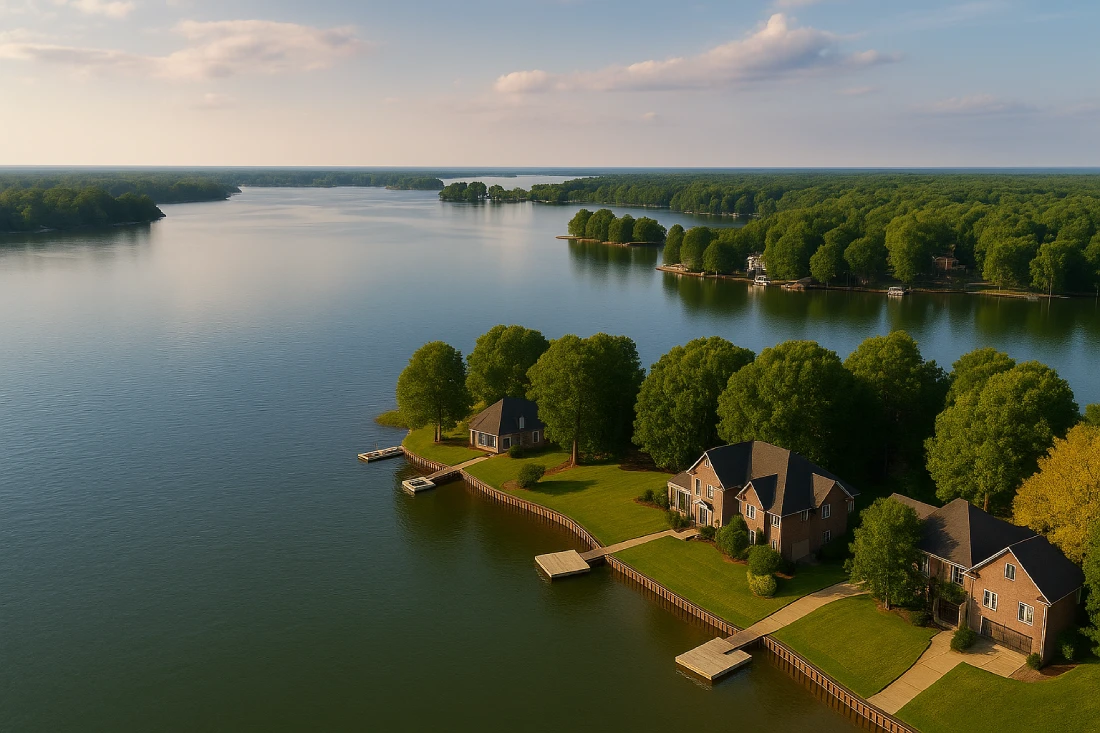



















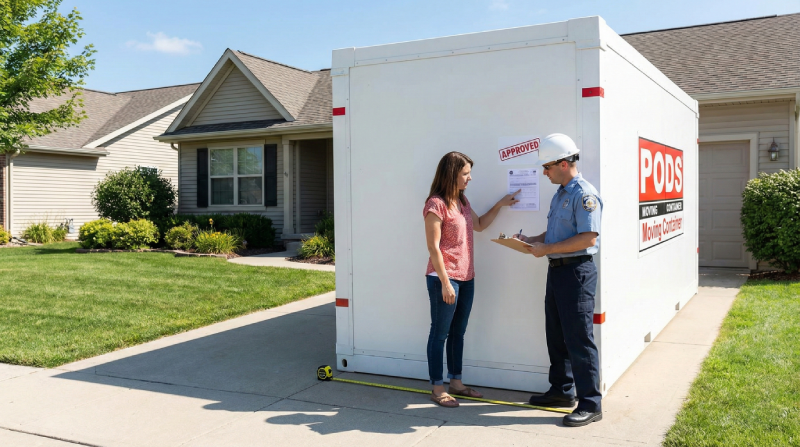



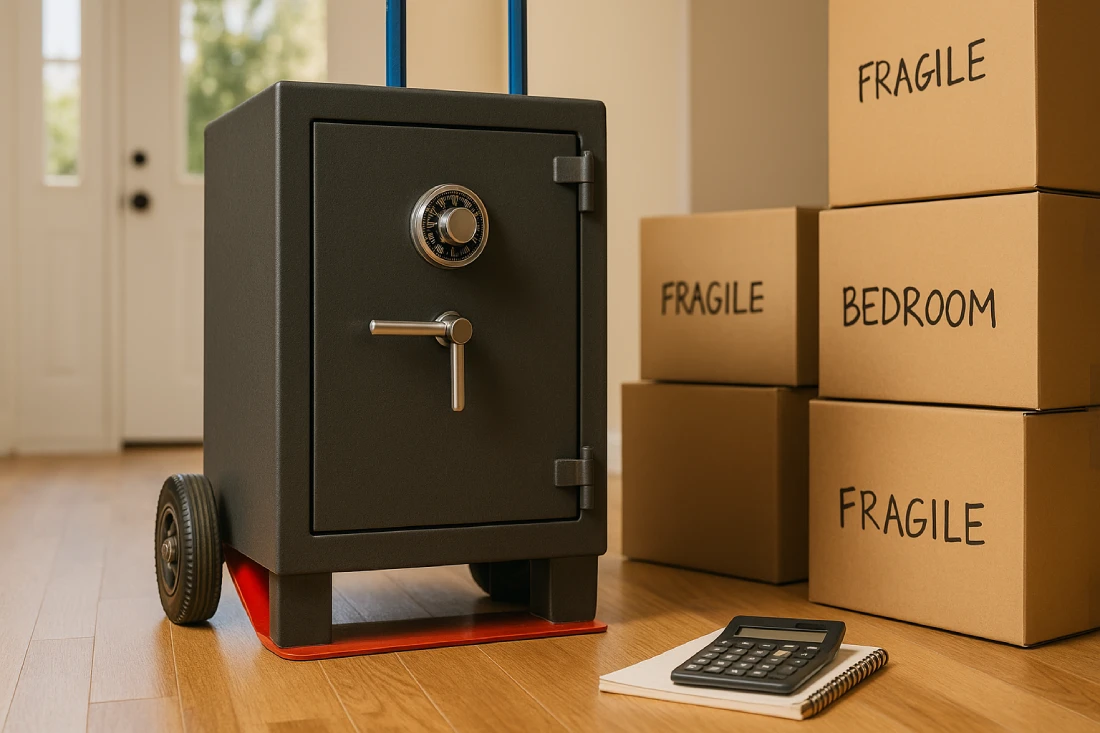
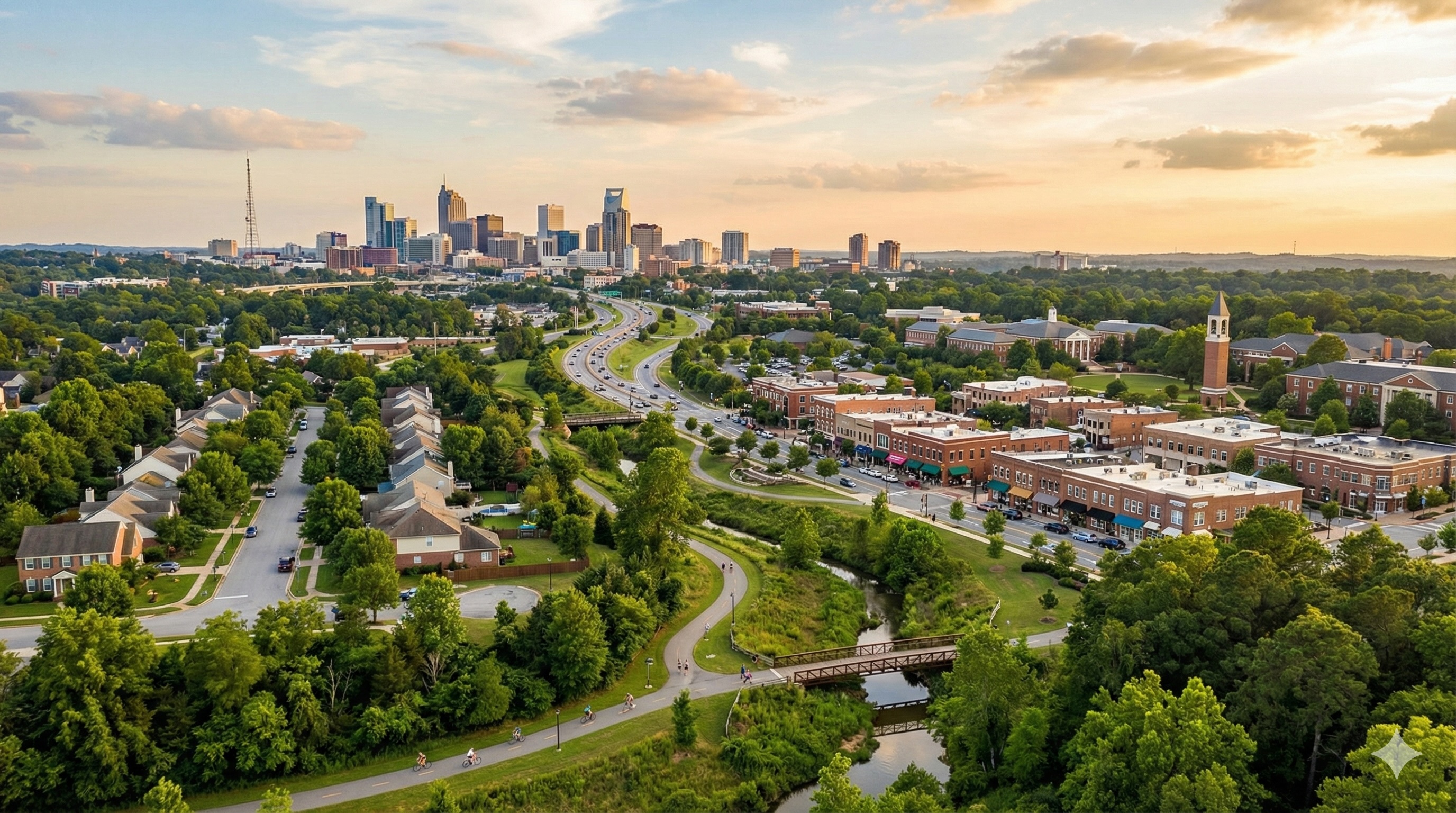









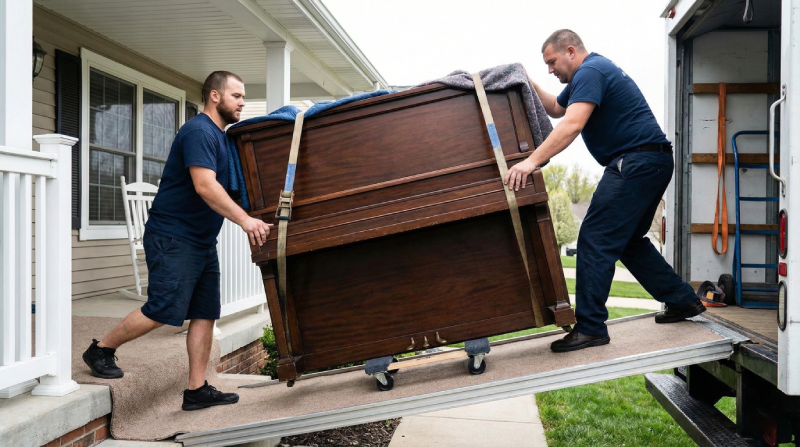







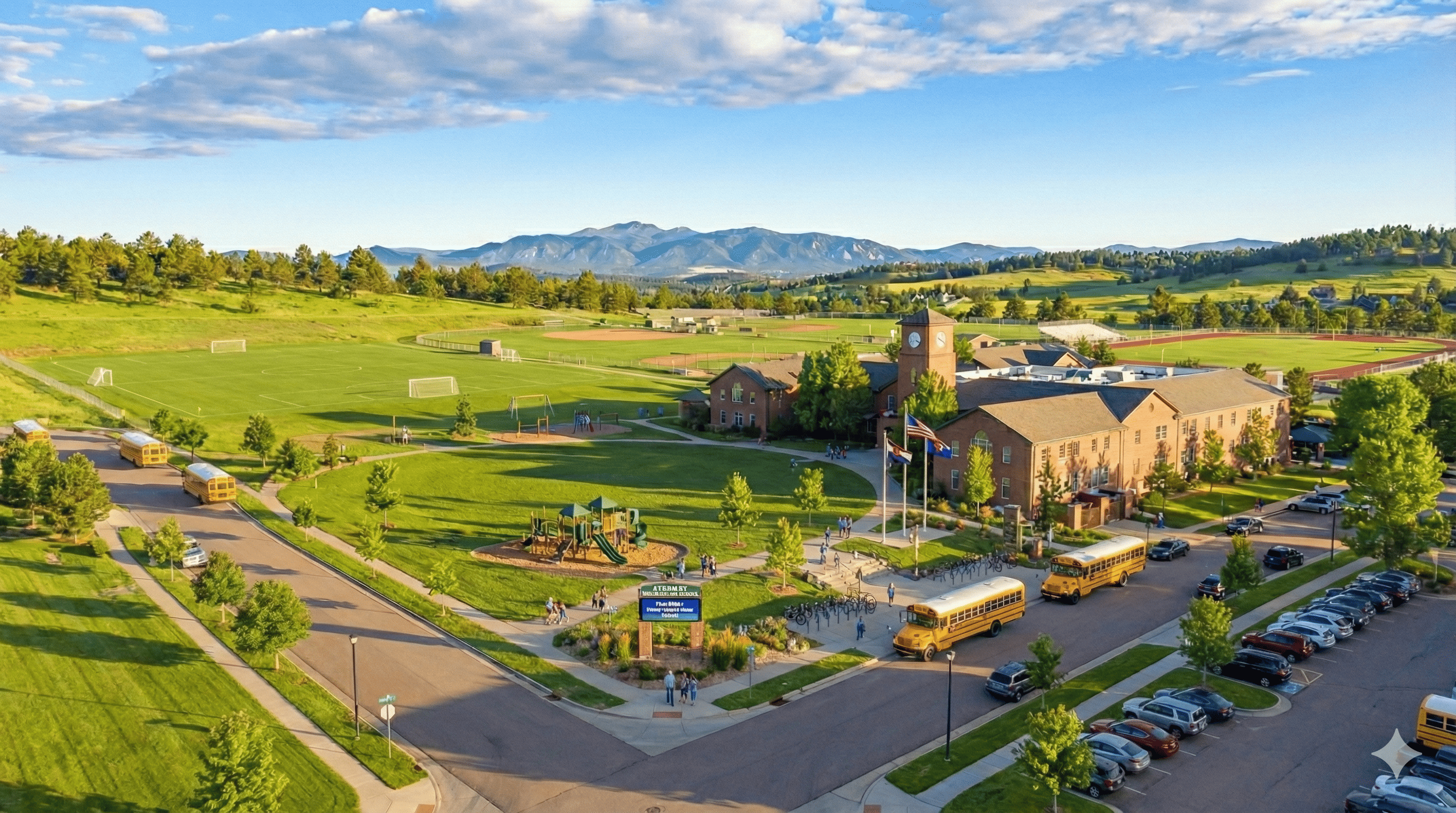



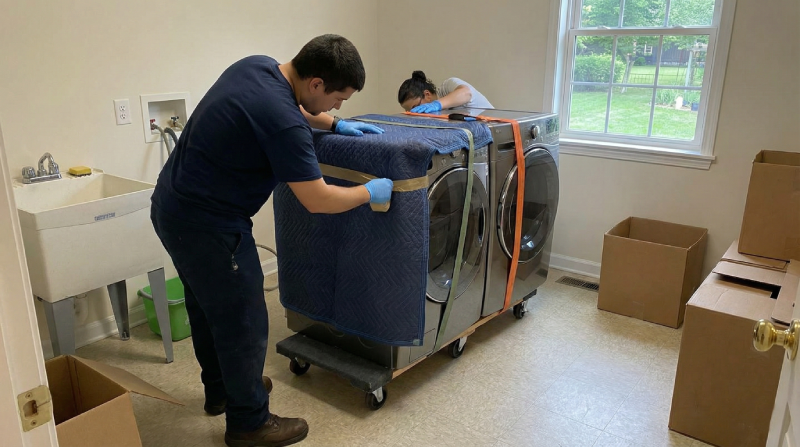
.webp)








